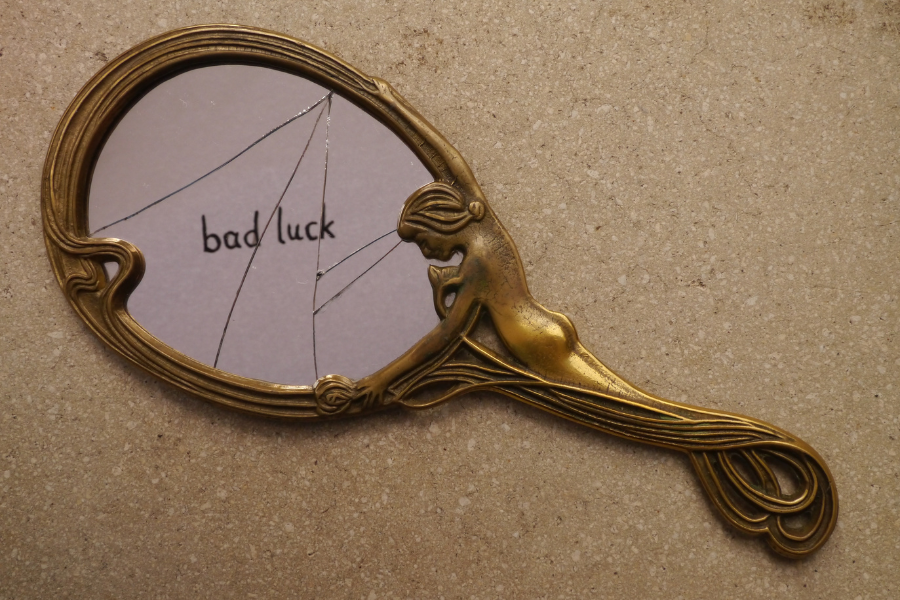Knocking on Wood and Crossing Fingers: Which superstitions do you believe in?
Superstitions, those intriguing threads of belief woven through the fabric of cultures, have long fascinated us. These curious notions, often born from historical events, spiritual beliefs, and a dash of the unknown, continue to captivate our minds. Here, we trace the roots of common superstitions across time and culture.
Historical Superstitions
From the earliest civilizations, superstitions have held sway over human conduct. Our ancestors, grappling with the mysteries of existence, sought explanations for life’s uncertainties through supernatural channels. These early beliefs ranged from avoiding certain animals as omens to attributing celestial occurrences, to divine messages, giving rise to the intricate web of superstitions.
Cultural Variations
Superstitions are far from uniform. They blossom in unique ways across cultures, reflecting the diversity of human experiences. While some superstitions are globally recognised, such as the belief in lucky numbers, others are deeply entrenched in specific cultural narratives. These regional variations highlight the profound impact of cultural heritage on shaping our irrational yet enduring beliefs.
Origins of Common Superstitions
Friday the 13th and its ominous aura
The dread surrounding Friday the 13th has deep roots in various ancient myths and religious beliefs. The fear of this day is often traced back to the Last Supper, where 13 individuals were present, including Judas Iscariot, who betrayed Jesus. The combination of Friday, considered an unlucky day, and the number 13 intensifies the superstition.
Walking under ladders and its historical connotations
The apprehension around walking under ladders has roots in medieval times when ladders were leaned against the gallows, a place of execution. Passing beneath a ladder was thought to invite bad luck and death, inadvertently symbolising one’s own descent into mortality.
Knocking on wood for luck and protection
The practice of knocking on wood to avert misfortune finds its origins in pagan beliefs. Trees were considered sacred and inhabited by protective spirits. By tapping on wood, people believed they could awaken and seek the protection of these benevolent spirits.
Breaking mirrors and the soul’s reflection
The superstition of seven years of bad luck upon breaking a mirror can be traced back to ancient Roman beliefs. Mirrors were considered to hold fragments of one’s soul, and damaging this reflection was believed to invite misfortune upon oneself.
Black cats as symbols of luck and omens
The black cat’s dual nature as both an omen of bad luck and a symbol of luck itself reflects the complexity of superstitions. In some cultures, black cats were revered as divine protectors, while in others, their nocturnal habits and association with witches bred fear.
Superstitions in Everyday Life
Lucky charms and their psychological impact
Carrying lucky talismans or objects is a way of harnessing positive energy and minimizing negative influences. The psychological phenomenon known as the placebo effect explains how belief in these charms can boost confidence and increase the chances of success.
Avoiding the number 666 and its religious undertones
The aversion to the number 666, often associated with the devil, stems from its appearance in the Book of Revelation in the Bible. This superstition highlights the enduring influence of religious narratives on cultural fears.
Spilling salt and the belief in warding off bad luck
Spilling salt has been linked to bad luck since ancient times, leading to rituals like tossing a pinch of salt over the left shoulder to counteract misfortune. The connection between salt and purity in various cultures likely contributes to this superstition.
Crossing fingers for luck and hopeful outcomes
The act of crossing fingers for luck is believed to date back to early Christianity when crossed fingers symbolized protection through the sign of the cross. Over time, this gesture evolved into a hopeful expression of wishing for positive outcomes.
Evolution of Superstitions
Superstitions have not lost their grip in the modern age. Despite advancements in science and rationality, these beliefs persist, perhaps serving as a psychological anchor in uncertain times. Our instinctual need for control and reassurance fuels the continuation of age-old superstitions in contemporary society.
Debunking and Embracing Superstitions
The tension between rationality and superstition has sparked ongoing debates. While science has debunked many superstitions, there’s an undeniable allure in embracing these beliefs. Superstitions offer comfort, connect us with our cultural heritage, and remind us of the enchantment that exists within the mysteries of life.
In the tapestry of human experience, superstitions stand as curious threads, interwoven with history, culture, and psychology. They remind us of our shared propensity for wonder and the enduring power of belief, whether rational or not. As we navigate the labyrinth of life’s uncertainties, let us tread lightly through the realms of superstition, appreciating them as intricate expressions of our shared human journey.
Do you know any other superstitions? Let us know in the comments below.
Lisa Lawrenson
Latest posts by Lisa Lawrenson (see all)
- Masterclass: How to grow a thick healthy lawn - March 31, 2024
- Lawn care – dealing with moss and thatch - March 22, 2024
- A beginners guide to Artificial Intelligence and Chat GPT - February 29, 2024
- 10 minute tutorial: How to arrange supermarket lillies into a stunning floral arrangement - January 1, 2024
- 10 health changes women should watch out for after 50 - January 1, 2024





















